"We want companies to be able to focus completely on keeping their business relevant."
The global cloud market is worth hundreds of billions of dollars annually. Amazon Web Services and Microsoft Azure are the biggest players; Google Cloud (with around 10% market share) is hot on their heels. Google Cloud opened an office in Amsterdam about three years ago in order to optimally serve and grow the Benelux market. They are working closely with partner and ICT service provider Vanenburg, headquartered in Putten, who can draw on huge expertise and experience in sectors like manufacturing, logistics, and retail. “Industry faces all sorts of challenges, and one of them is to establish a solid digital foundation for their processes.”
Google’s parent company Alphabet has made Google Cloud a strategic priority and also wants to rapidly grow the number of customers in the Benelux from its Amsterdam office – from SMEs to large enterprises, from healthcare and government to industry and every other conceivable sector, so says Joris Schoonis, managing director Google Cloud for the Benelux. He cannot provide specific figures for this region, “but the market is very promising and we are receiving a lot of enthusiastic responses”, he affirms. “Over the whole of 2018, Google Cloud achieved $5.8 billion in revenue globally. The figure for the last quarter alone was $7.3 billion. We are also investing huge sums in the Netherlands in our data centres in Eemshaven and elsewhere, in order to be able to optimally serve our increasing number of customers.”
Digital journey
Google Cloud provides a high-performance infrastructure for storage, data analytics, AI, machine learning, and online collaboration. In doing so, it employs a distinctly partner-first strategy: it works with the world’s major system integrators and serves a group of customers via a network of distributors. But essential to its operations is the dedicated partners with specific market experience and expertise. Schoonis mentions: “When we start a conversation with a new or potential customer, we want to do it with a partner who knows their way around a particular sector. Vanenburg, for example, is completely at home in industry, logistics, and retail, three important clusters. We know a lot about the technology, but it takes a lot more than that to ultimately make our customers’ digital journeys successful in practice.” He describes Vanenburg as a committed partner with deep domain knowledge to serve customers based on Google Cloud technology. Vanenburg works for customers in the Netherlands and is able to support them effectively in other parts of Europe and the rest of the world.
Relationships that last
Vanenburg and Google Cloud Benelux act together in the market. They have a joint strategy and a joint business plan. Engineers and product managers from both organizations have close, direct contacts when required. Schoonis: “We are not looking for instant success. We want to create long-term value for our customers. We are building relationships that last.”
“Vanenburg has been a Google Cloud partner for about ten years, and that partnership has only intensified in recent years”, says Vanenburg CEO Ardjan Baan. “In the past, we had our own cloud platform with Cordys. We later made the shift to a partnership with Google Cloud precisely because we can build and rely on the tremendous innovative power of a player like Google. Vanenburg specializes in ‘the last mile’: that is, we apply proven technology in the customer’s context. Google keeps launching new cloud products, which is great to see. We embrace those ‘semi-manufactures’ and create final solutions for our customers.”
"We naturally bring our customers' applications and data to the cloud and apply the latest and greatest machine learning and artifical intelligence to them."
Joris Schoonis - Managing Director BeNeLux, Google Cloud
Latest & greatest
Schoonis reels off a list of benefits that Google Cloud, along with its partners, hopes will differentiate it from other cloud providers: “We naturally bring our customers’ applications and data to the cloud and apply the latest and greatest machine learning and artificial intelligence to them. In doing so, we offer a distinctly open cloud: companies may have on-premise business software, they may use business-critical applications from a variety of vendors or they may be on other cloud platforms. Our platform is set up so that everything can easily communicate with everything else. And we are very mindful of providing a highly secure cloud: cybersecurity and data integrity are paramount. We can assure clients that all the data is and remains your data. We offer a collaborative cloud: companies can collaborate and communicate effectively and securely, both internally and externally.” Schoonis also hails Google Cloud as the greenest, most sustainable cloud. “Today, that is more relevant than ever. By 2030, we want to be completely carbon neutral.”
Digital foundation
Google Cloud provides an overarching platform with a range of capabilities and knowledge to host, access and analyze data. Baan: “Industry faces all sorts of challenges, and one of them is to establish a solid digital foundation for their processes. All their OT and IT applications must be able to talk to one another: in some cases that is all in order, but very often we still see gaps and omissions. With Google Cloud as our foundation, we facilitate connection and collaboration. That in itself represents the condition for the next step: a truly intelligent operation. “Manufacturing companies commonly have a host of sensors in their own production processes, as well as in the machines and other products they supply to their markets. They want to be able to read and use the data in smart ways, for instance for predictive maintenance and forecasting. Again and again, the question is how they can operate better as a company. How do they come up with better and different products and optimize their operations? Digital transformation helps them achieve that.”
Obviously, digitalization is not an end in itself, Baan and Schoonis emphasize. Schoonis: “We make life easier for our customers so they can focus completely on their organization in order to set themselves apart from other firms in their market.”
Custom applications
Google Cloud customers worldwide include big names such as Mitsubishi Heavy Industries, Siemens, Toyota, and Airbus. An example from Vanenburg’s client roster is Solvay, a Belgian multinational chemicals and plastics company, for which it manages a custom application for visual inspection, coupled with AI and machine learning to interpret the constant stream of photos and video images. Image analysis reveals whether safety rules such as wearing protective clothing and helmets are being properly observed, for example. It can also be used for product inspection, or to help identify the causes of production outages. ASML uses the Google Cloud platform for product development, among other things: it runs simulations with huge amounts of data to shorten the time to market. Baan: “In the old world, that kind of testing would take much, much more time and effort.”
"With these kinds of 'LEGO bricks' and our own Rappit Developer product, we can build specific applications for customers very quickly."
Ardjan Baan - CEO Vanenburg
Price model
But the cloud, with all its smart applications, has long since ceased to be something for just the big players of this world, Schoonis and Baan argue. There are also attractive opportunities for SMEs “thanks to the flexibility in the pricing model”. Schoonis: “We are also very keen to expand into the markets for smaller and medium-sized businesses, offering the most innovative technology at a viable price point.”
“In any case, the decision on whether to go to the cloud is not necessarily related to the size of a company”, Baan explains. “Companies recognize that they can differentiate themselves in the marketplace by taking that step”, he says: “Where IT used to be seen primarily as a cost component, in recent years that has shifted dramatically to ‘Every company needs to become a software company’.” Besides supplying products, every company has to ‘do something’ in terms of supplying information: the market wants up-to-date data on delivery times, quality, maintenance, materials sourcing, production methods, ecological footprints, you name it.” The chains are awash with an enormous volume of information and we can make better use of it with Google Cloud technology.
Digital toolbox
Last year, Vanenburg introduced Rappit Developer, a high productivity coding product, in order to build specific applications for customers faster than ever. The accelerator has already been in use internally for some time. Baan: “At the start of a project, we list the customer’s requirements and develop a prototype. We visualize it and present it to the customer. After that, we tweak the prototype and immediately generate the code for the application. The application then runs in Google Cloud or, if desired, locally at the customer’s own premises.” For example, they developed a Rappit Shopfloor solution using Rappit Developer and building blocks from Google Cloud for metals company Vlastuin Group as the launching customer.
If required, Vanenburg can train customers to use the Rappit Developer ‘toolbox’ themselves and it also offers the tool to other (Google Cloud) partners operating in completely different markets, such as government or finance. Baan: “That’s another reason why I’m extremely pleased with the broad, innovative ecosystem of Google Cloud and partners that we are part of. Google Cloud is continuously launching new building blocks, such as the Manufacturing Data Engine solution or the Cortex framework to process SAP data. With these kinds of ‘LEGO bricks’ and our own Rappit Developer product, we can build specific applications for customers very quickly.”
Schoonis adds, “It’s great that Vanenburg, with all its expertise, has established a framework like Rappit Developer to serve customers faster. That’s a win-win for all parties. Innovation is part of our culture and we encourage it in our partners as well.”
Signals
Google Cloud works with a customer advisory board in order to get direct customer feedback about their needs and the changes they want to see. Those requirements and signals also come in via the partners. “We continue to develop in many areas”, Schoonis says. “We are convinced that we are on the right track with our partners and we are constantly listening to the market. We also get a lot of positive feedback from the market about working with Vanenburg.” Baan: “We don’t just sell a few random components to go under the bonnet. We enable companies to operate more smartly and efficiently by optimizing their automation.”
For more information, visit www.vanenburg.com/google-cloud-platform
For the dutch interview see the Link Magazine website: www.linkmagazine.nl
Facts and figures
- Amazon Web Services, Microsoft Azure and Google Cloud dominate the cloud market, accounting for two-thirds of the market between them.
- In 2021, global sales in the cloud market exceeded €275 billion. Turnover in Europe was around €65 billion.
- The market is growing by tens of percentage points a year. Estimates suggest that in around five years’ time, the global cloud market will be worth around €350 billion annually.



